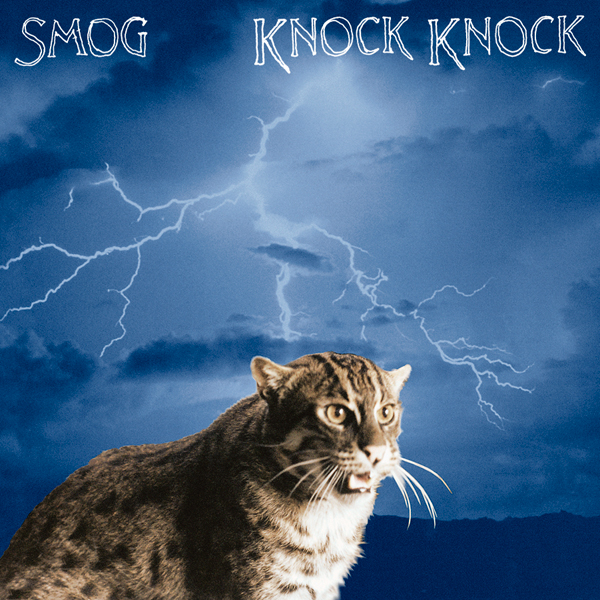Bill Callahan has one of the most storied careers of any active musician. There are veterans who have spent more time on Earth releasing records, but Callahan has used his now-twenty years of life in the album space without wasting a moment. From Sewn to the Sky, the debut record that challenged ears in a most difficult and abrasive fashion, to the latest of Callahan offerings, Apocalypse, he has used very specific attitudes and characters that add up to personal growth within himself. His voice and music have progressed from philosophically-interested whines of a late-teen to a man of lessons to teach and wisdom to pass on, however it hasn’t just been a product over making a great many records–it took its true turning point in the form of Knock Knock.
The album takes its most elated, hopeful, and generally brimming track and places it at the beginning. “Let’s Move to the Country” finds Callahan’s character on Knock Knock in one of his weakest states: one that is willing to love and risk it, but at the same time he is still unsure. He poignantly sings “Let’s start a… let’s have a…” and without even finishing a sentence, the syllables of the word he wants to say are rather a couple notes from his guitar. Why he excludes that lyric could be interpreted as anything, he wanted what love was able to create and that follows through right until the very last track of the record where lack of that one word is simple foreshadowing of what the artist cannot have.
“Left Only With Love,” the album’s last hurrah, is a sparing song on losing a person to somebody else, and maybe the reason Callahan leaves out those words on “Let’s Move to the Country.” Ostensibly, the only sources of sound on this song are his voice and guitar. One moment, some drums attempt to kick in, perhaps in effort to start a ballad, but they live only for a brief few seconds until they are stopped abruptly, leaving Callahan alone once again.
While Knock Knock has a concise theme and story, it contains a few of the greatest songs that Bill Callahan has ever written. “River Guard” for instance, one of his lyrical staples, contrasts the differences between prisoners, prison guards, and everyday free citizens. He notices while watching over them in the river that they are having “the time of their lives” and as he looks closer at the situation, he becomes the real prisoner, consistently ringing “We are always on trial, it’s a way to be free”: a depressing thought, but one to think about.
Like other works of Smog, Knock Knock isn’t musically complex–it just builds around a few chords and fills it with strategically used accompaniments that work so well in Callahan’s favor. Take “Hit the Ground Running” for example, which follows a two-chord melody, but gracefully fills its nearly seven-minute runtime with intense background instrumentation. With early, perfect minimalism, he can make two chords sound not only grandiose, but beautiful and spacious.
“Teenage Spaceship,” this album’s most personally resonant song to me, relates easily and closes a chapter in Callahan’s music. The song suggests that the world of a teenager is just like space: you’re sort of trapped in this new, mystical, ever-changing wasteland, but mostly you feel alone inside it. This song is a look back at the nostalgia of being alone and secluded, but he knows he’s moved past using it as a tool of feeling better about life these days, especially in ways about songwriting. He harkens back to his experimental, noisy past: “I was a teenage smog, sewn to the sky.” It’s the album’s ultra-fitting thesis that strikes notions of what it’s continually like to wander in the same place.

